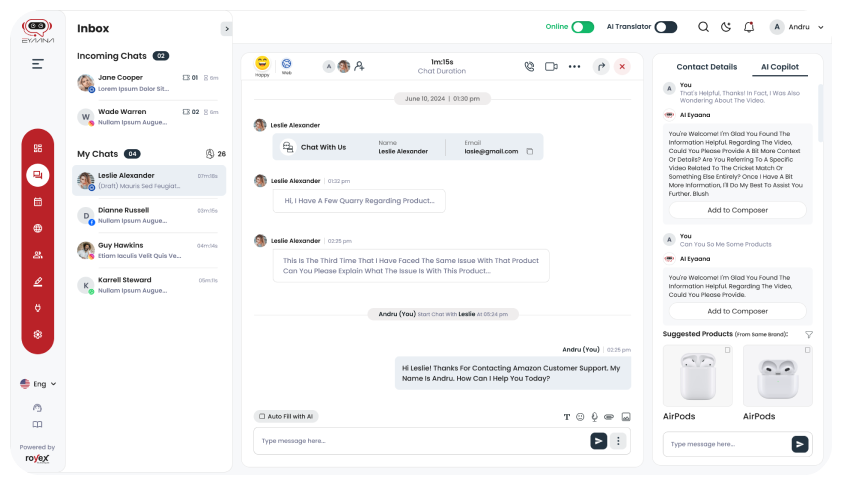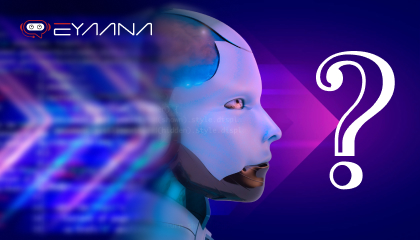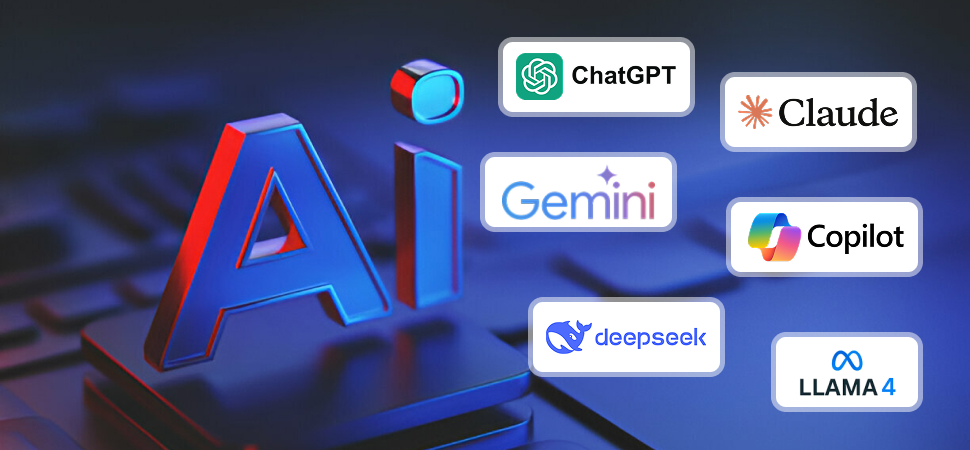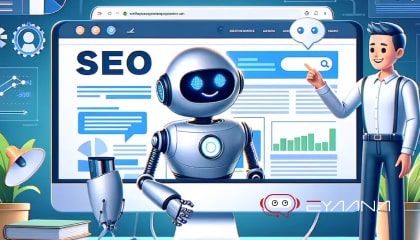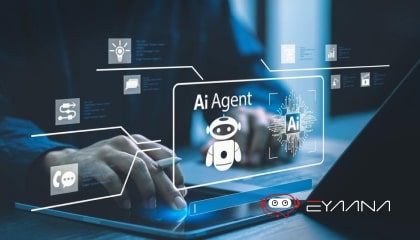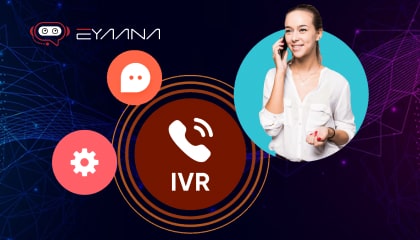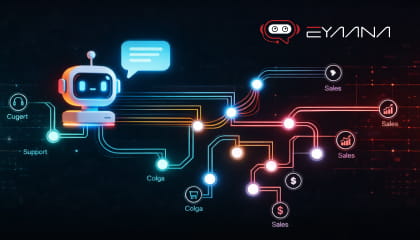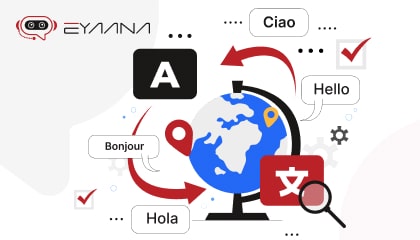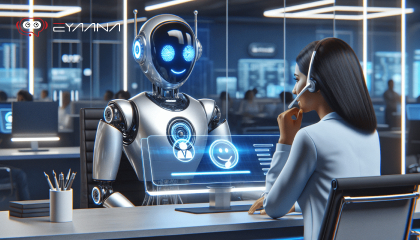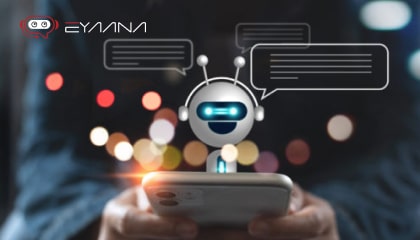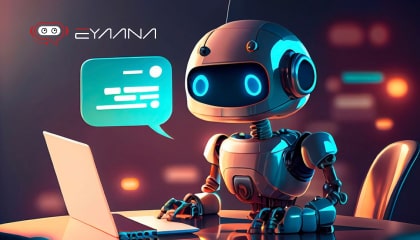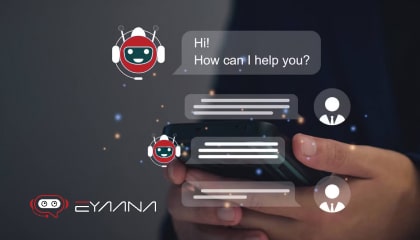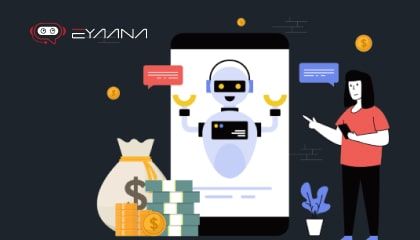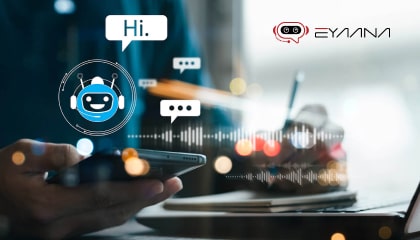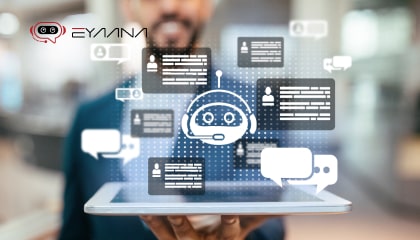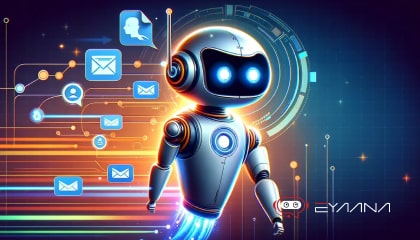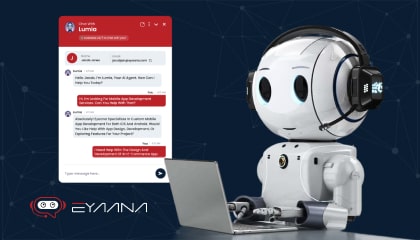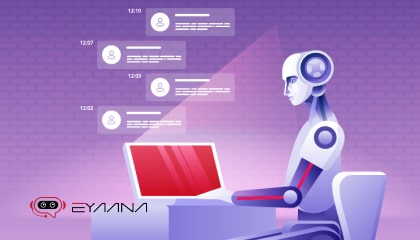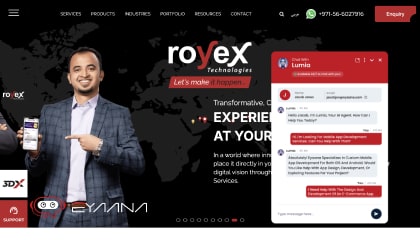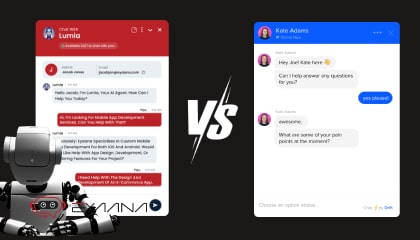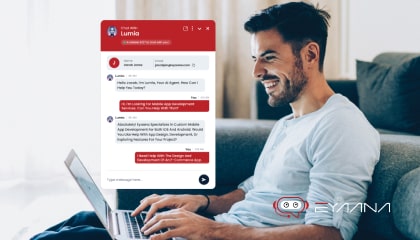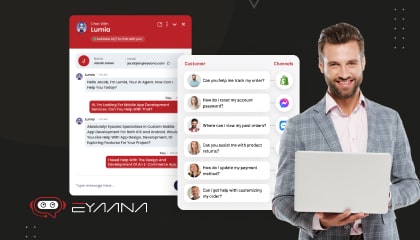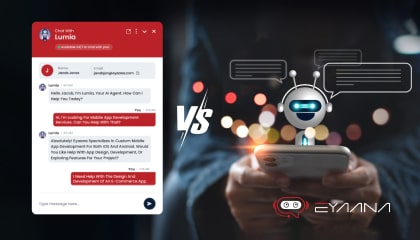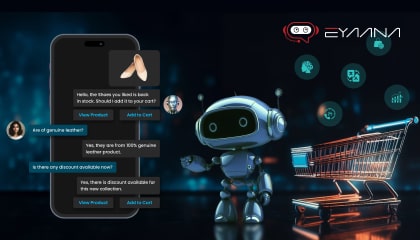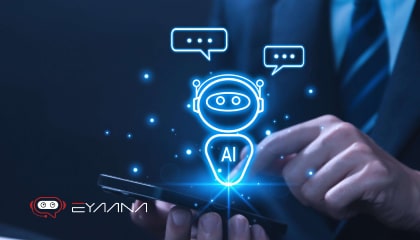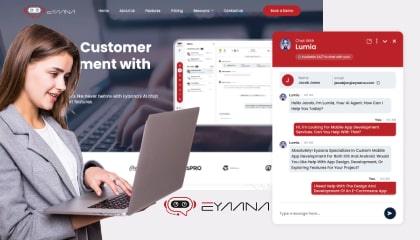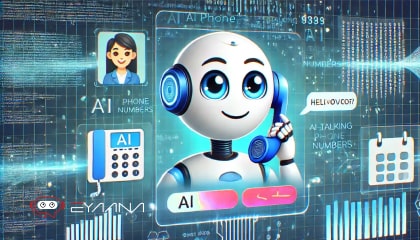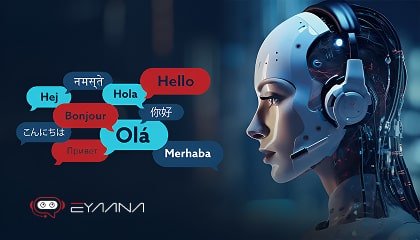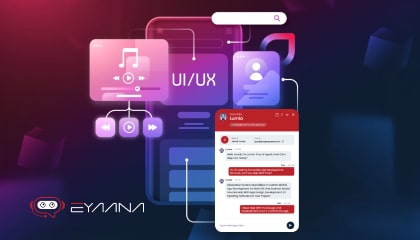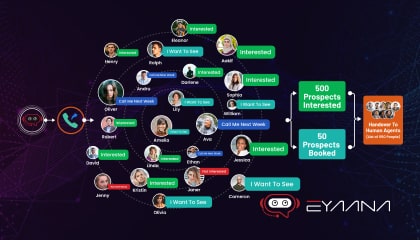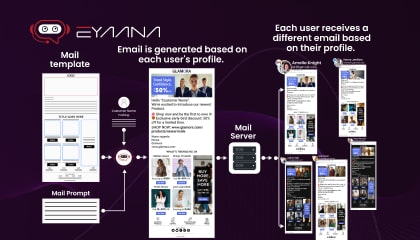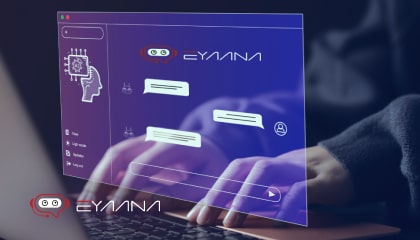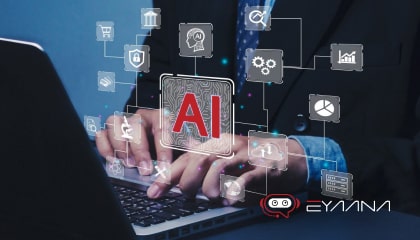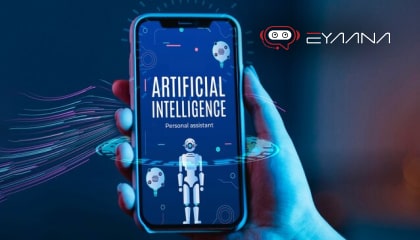Enquiry
Blog Details
What Is The ROI Of Implementing An AI Chatbot?
In today’s digital world, businesses are constantly seeking ways to improve efficiency, enhance customer experience, and reduce costs. One of the most popular solutions gaining traction is the implementation of AI chatbots. But while AI chatbots may seem like a futuristic innovation, many companies are discovering their ability to deliver real, tangible benefits. This leads to the important question: What is the Return on Investment (ROI) of implementing an AI chatbot?
In simple terms, ROI measures how much profit or benefit a business gains from its investment. For AI chatbots, ROI is about the value that businesses get from adopting chatbot technology, in terms of both financial savings and non-financial benefits. Let’s break down how implementing an AI chatbot app can result in a positive ROI.
What is ROI?
![what-is-roi-min[1].jpg](/media/duadl3bl/what-is-roi-min-1.jpg)
ROI stands for Return on Investment. It is a way of measuring the profitability of an investment. In simple terms, ROI compares the benefit or profit a business gains from an investment (like an AI chatbot) against the cost of making that investment.
In the case of AI chatbots, the "cost" refers to expenses like the development, integration, and maintenance of the chatbot. The "benefit" comes from the improvements the chatbot brings, such as cost savings, increased sales, or better customer satisfaction.
Key Benefits of AI Chatbots That Contribute to ROI
Reduced Operational Costs
One of the most immediate ways AI chatbots provide ROI is through cost savings. Traditionally, businesses rely on human customer service agents to handle inquiries. These agents work on shifts, require salaries, training, and need to take breaks. On the other hand, AI chatbots are available 24/7, don’t need breaks, and can handle thousands of customer inquiries simultaneously.
By automating routine tasks like answering frequently asked questions, providing product information, and processing simple requests, AI chatbots can significantly reduce the need for human staff to handle basic customer interactions. This can lead to savings in salaries, training costs, and other operational expenses.
Example: A business that replaces 5 full-time customer service agents with an AI chatbot may save thousands of dollars annually in wages and overhead costs, while still providing customers with round-the-clock support.
2. Improved Customer Experience and Satisfaction
Another area where AI chatbots contribute to ROI is enhanced customer experience. Customers today expect fast responses and seamless service. AI chatbots provide instant replies to queries, improving the speed of service and increasing customer satisfaction.
The ability to get answers immediately, at any time of day or night, is a powerful advantage. Whether it's resolving an issue, checking an order status, or getting recommendations, a well-designed AI chatbot can meet customer expectations more efficiently than human agents alone.
Example: If a customer asks a chatbot for help at 2 AM and receives an immediate response, their satisfaction with the service increases, leading to higher customer loyalty and, in the long run, repeat business.
3. Increased Sales and Lead Conversion
AI chatbots can be used to generate leads and even drive sales. Many chatbots are designed to ask users questions to gather information, such as what type of products or services they are interested in. This can be a crucial step in helping businesses qualify leads and suggest personalized recommendations.
For example, e-commerce websites often use AI chatbots to suggest products based on a customer’s browsing history or even ask if they need help finding something specific. Chatbots can also follow up with leads who abandoned their shopping carts, offering assistance or discounts to encourage a purchase.
Example: A retail business using an AI chatbot to guide customers through product recommendations may see an increase in conversion rates because customers are more likely to buy when they receive tailored advice.
4. Increased Productivity and Efficiency
AI chatbots handle multiple conversations at once and are not limited by work hours, which means they can increase productivity across the board. By automating repetitive tasks, chatbots free up employees to focus on more complex and higher-value work, such as problem-solving and decision-making. This leads to a more efficient use of human resources and enhances overall productivity within the company.
Example: In a customer service department, a chatbot may handle 70-80% of routine inquiries, allowing human agents to focus on resolving more complicated cases, improving overall team efficiency.
5. Data Collection and Insights
AI chatbots don’t just assist customers—they also collect valuable data about interactions, customer preferences, common issues, and frequently asked questions. This data can be analyzed to provide insights into customer behavior and help businesses improve their offerings.
For instance, AI chatbots can help identify gaps in customer service or common pain points in the purchasing process, which businesses can address to improve customer satisfaction and sales. This information allows businesses to make data-driven decisions that can further increase their ROI.
Example: A telecom company might use chatbot data to identify that customers frequently ask about data plan upgrades. As a result, the company might decide to promote its new, more affordable plans more actively, leading to an increase in customer sign-ups.
6. Scalability
As a business grows, the volume of customer inquiries typically increases as well. AI chatbots can easily scale to handle larger volumes of customers without significant additional costs. Unlike hiring more human agents, scaling up an AI chatbot solution involves only minor tweaks to its system, rather than substantial investment in human resources.
Example: A small e-commerce website may initially use a chatbot to handle basic questions. As the site grows, the chatbot can be upgraded to handle more complex tasks, such as processing returns or managing promotions, all without needing a corresponding increase in staffing.
7. Faster Response Time and Reduced Wait Time
AI chatbots excel at offering immediate responses, eliminating wait times for customers. This quick service is especially important in industries like hospitality or banking, where customers expect real-time answers to their questions.
By reducing response times, chatbots can improve customer satisfaction and decrease the likelihood of customers abandoning inquiries due to long wait times. This leads to higher conversion rates, as customers are more likely to complete their purchases or inquiries when they get a quick response.
Costs of Implementing an AI Chatbot
![costs-of-implementing-an-ai-chatbot-min[1].jpg](/media/ekinsrjn/costs-of-implementing-an-ai-chatbot-min-1.jpg)
To calculate ROI, it’s essential to understand the costs involved. These can vary depending on the complexity of the chatbot and the business's needs.
-
Development Costs: Includes designing, building, and testing the chatbot. Custom chatbots may cost more than off-the-shelf solutions.
-
Integration Costs: If the chatbot needs to connect to other systems like CRM, payment gateways, or databases, integration costs may apply.
-
Subscription Fees: Many chatbot providers offer monthly or annual plans for hosting and maintaining the chatbot.
-
Training: Initial training is required to teach the chatbot how to handle specific queries. Periodic updates may also be needed.
-
Maintenance and Updates: Ongoing costs to ensure the chatbot remains functional and up-to-date with new features or changes in customer needs.
Factors That Affect ROI
-
Business Size and Industry: Larger businesses or industries with high customer interaction (e.g., e-commerce, banking) often see higher ROI.
-
Chatbot Features: Advanced features like natural language processing (NLP), voice recognition, or multilingual support may increase upfront costs but also provide better returns.
-
Integration: A chatbot integrated with CRM, marketing, and sales platforms provides more value by streamlining operations.
-
Customer Adoption: ROI improves as more customers use the chatbot and benefit from its services.
Tips to Maximize ROI
-
Start Small: Begin with a simple chatbot for specific tasks and expand its functionality as needed.
-
Focus on High-Impact Areas: Identify tasks that consume the most resources or cause the most customer complaints and automate those first.
-
Regular Updates: Continuously train the chatbot to handle new queries and adapt to changing customer needs.
-
Monitor Performance: Use analytics to track the chatbot’s impact on metrics like resolution time, customer satisfaction, and sales.
Why Choose Eyaana for AI Chatbot ?
![eyaana-min[1].jpg (2)](/media/v1nd3ish/eyaana-min-1.jpg)
If you’re looking for a powerful yet user-friendly AI chatbot solution, Eyaana is worth considering. With Eyaana, businesses can seamlessly turn website traffic into live, engaging conversations, making it easier to convert leads into customers.
Eyaana is designed to be an AI-first customer support and sales solution, meaning it comes with powerful automation features, yet it’s easy to use even for non-technical teams. Its inbuilt CRM and helpdesk make customer management simple, while its AI-driven chat capabilities provide a smart, personalized experience for users.
Inbuilt CRM and Helpdesk: Eyaana comes with a built-in CRM and helpdesk, allowing businesses to manage customer data and support interactions in one place.
Flexible Pricing: Choose from Eyaana’s Lite and Pro packages starting from $99/month, with flexible, commitment-free tiers tailored to suit businesses of all sizes.
Multilingual Support: Engage a diverse audience with language options like Arabic, English, Hindi, and Urdu.
AI-First Design: Eyaana’s chatbot learns over time, enhancing customer interactions and turning site visits into conversations.
Scalability: Eyaana adapts to business growth, handling higher customer interactions with ease.
24/7 Support & Analytics: Real-time data and round-the-clock support help improve customer experiences.
Conclusion
The ROI of implementing an AI chatbot can be substantial, offering businesses significant cost savings, improved productivity, enhanced customer satisfaction, and even increased revenue. While the initial investment in chatbot technology may seem high, the long-term benefits often far outweigh the costs. By improving efficiency, scaling customer service, and increasing sales opportunities, AI chatbots are a valuable asset for businesses in any industry.
As a business looking to implement an AI chatbot app, Eyaana offers the best value. Eyaana’s AI-driven chatbot solution is designed to deliver tangible results quickly, integrating seamlessly with your existing systems to improve customer experience, streamline operations, and ultimately boost your ROI. With its user-friendly interface, intelligent automation, and customization options, Eyaana is an excellent choice for businesses seeking to maximize the benefits of AI technology.
To explore how AI can enhance your business operations, sign up for free and get started with Eyaana today.
Do you need help?
We will provide detailed information about our services, types of work, and top projects. We will calculate the cost and prepare a commercial proposal.
